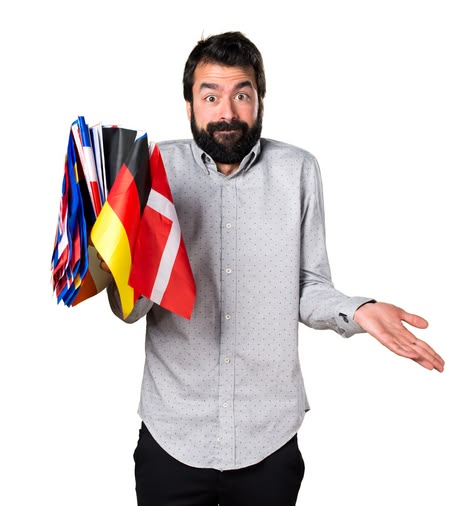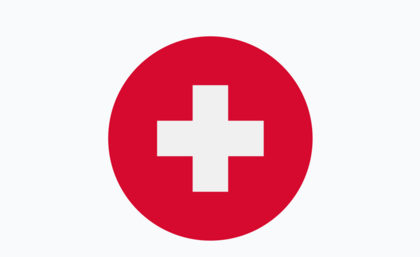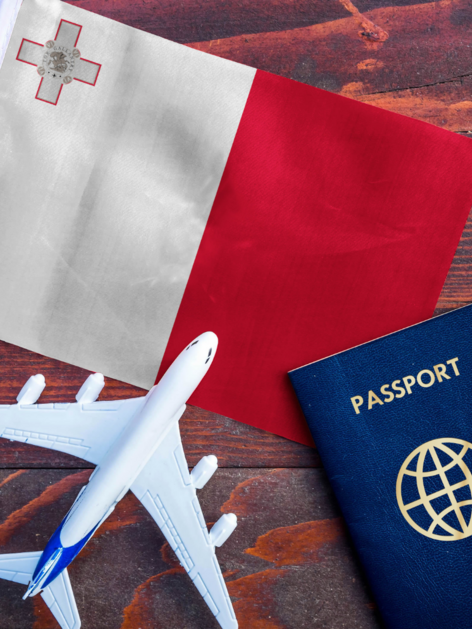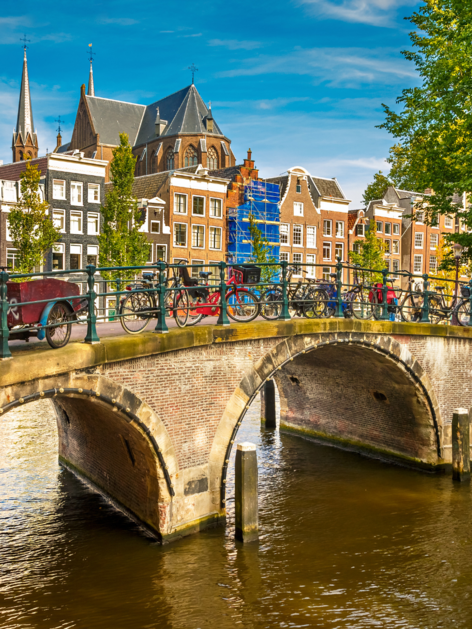Switzerland Languages: What languages are spoken in Switzerland?

Which language is spoken in Switzerland?
Languages in Switzerland vary from Katon to Katon, and therefore vary greatly within the country. To give you an idea of how many people in Switzerland speak each language, we've given an approximate percentage of the population in Switzerland who speak that language.
Take a look at the languages of Switzerland. First, let's start with the official languages of Switzerland!
Official languages of Switzerland
Schweizerdeutsch or Swiss German
Is spoken of 62.6%
The German language is spoken by most people in Switzerland. Most of the 6 Swiss cantons speak Swiss German as an official language. Swiss German is very different in many aspects compared to German from Germany. Most notably, Swiss German differs in pronunciation, vocabulary, grammar and written language. Hoch Deutsch or High German is used more often by the Swiss in formal settings.
Your possibilities to learn German
Italian in Switzerland
Is spoken of 6.2%
Italian is also spoken in Switzerland in some areas. Light dialects understandable to Italians are spoken in Switzerland. For example, Ticino (derived from Lombard) is spoken or the Como dialect. Italian is spoken in the two cantons of Ticino and Grisons and in parts also in Valais in the south of Switzerland. These regions of Switzerland are often referred to as Svizzera italiana (Italian Switzerland). The Italian language is also one of the four official languages of Switzerland.
French in Switzerland
Is spoken of 22.9
In terms of the number of speakers, French is the second most spoken language in Switzerland. In recent years, the use of French in Switzerland has continued to increase. French is mainly spoken in the western part of Switzerland. There are a total of six cantons where French is spoken in Switzerland. These include Geneva, Vaud, Neuchâtel or Jura. In these cantons, mainly Swiss French is spoken in everyday life.
Rhaeto-Romanic
Is spoken of 0.5%
Romansh is one of the Swiss official languages of the Canton of Graubünden. It is the only official language in Switzerland that is actually spoken only in Switzerland. Today, only 60,000 Swiss speak Romansh. Therefore, this historic Swiss language is in danger of dying out. However, measures are being taken to prevent the disappearance of the language. For example, the association "Lia Rumantscha" is taking care of the survival of the language. It was renamed Rumantsch Gritschun in the eighties.
Learn languages and explore the world
Discover our exciting language courses in the most beautiful destinations worldwide!
Facts and origin of the official languages in Switzerland
Switzerland is a multilingual country divided into self-governing cantons that choose which language(s) are used in everyday and public life. As we have seen above, we must speak of Swiss national languages in the case of German, French, Italian and Romansh.
German, or rather Swiss German, was used in the twentieth century mainly in private life and by the lower social classes. This changed with the arrival of Nazism in Germany during the World Wars and in the following years, when this variety of German also spread to the media and the public and became increasingly socially accepted. French, brought into the country by books, by groups speaking Franco-Provençal dialects, and by the proximity of the French, was instead the language of the upper social classes.
The Italian-speaking areas of Switzerland have been under the domination of Italian-speaking peoples for centuries. Italian, German and French were chosen as the national languages of Switzerland in 1848, the birth year of the federal state. In February 1938, Romansh was chosen as the official language. Being a predominantly rural area with small villages located far from each other, Rhaeto-Romanic has been fragmented into various dialects over time.
Other languages in Switzerland
Which foreign languages do Swiss people speak?
The other languages of Switzerland account for almost 6% of the total. In particular, English, Croatian, Portuguese, Serbian, Spanish and Albanian. English in Switzerland, for example, is very common and is spoken by 45% of the Swiss. Especially the German-speaking cantons of Switzerland speak English as a foreign language.
The remaining other languages in Switzerland come from immigrants from the respective countries and are spoken as a second language in addition to the language of the time typical for the canton.
Online
Language courses
Learn foreign languages effectively and in the comfort of your own home with real teachers!
Get a 5% loyalty discount on your next language study trip!
Swiss languages by the cantons
What are Swiss cantons?
If you're talking about Switzerland, you've probably heard of the cantons. The Swiss cantons are autonomous geographical areas, each with its own constitution and government. The Swiss Confederation consists of 26 cantons, including Ticino, Geneva, Fribourg, Schaffhausen, St. Gallen, Basel-Landschaft and Basel-Stadt. Within the Swiss cantons, different languages are spoken. Let's see which languages are spoken in which cantons.
Languages of the Swiss cantons
Each canton in Switzerland decides which language is used in public spaces, and German and French are the most widely used at the national level. Some cantons use both languages, such as Bern, part of Basel, Fribourg and Valais. The canton of Graubünden, on the other hand, is the only trilingual Swiss canton with Romansh, Italian and German.
As for the individual languages, German was chosen by the majority of the cantons, even by 19 out of a total of 26, mainly in Central and Eastern Switzerland. French is mainly used in the so-called Western Switzerland, in the east of the country, in the four cantons of Neuchâtel, Geneva, Jura and Vaud. Italian is the language of the canton of Ticino, but is also used in some areas of the canton of Grisons. The latter, however, as mentioned above, is the only canton where Romansh is still spoken.
Bilingualism in Switzerland
Since there are four official languages in Switzerland, it is reasonable to assume that people in Switzerland speak more than one language. This is exactly how it is. Normally, a Swiss person speaks at least two languages and is therefore bilingual. So many Swiss wake up with two or more languages!
Most Swiss learn a third foreign language early in school. This is usually English. So a typical Swiss in German cantons usually speaks German or Swiss German, French or Italian as a second language and English as a third foreign language.
Living in Switzerland: These are the languages you should know
If you want to go to Switzerland and work in one of the country's largest cities, you may wonder which language is mainly spoken in Switzerland and which is also used in the workplace. First of all, it's good to keep in mind the linguistic division of the country and check the exact location of the place where you want to go. We have talked about the Swiss cantons and the different languages spoken in the region. Therefore, it is important to know what language you speak in the region you are traveling to.
For example, if you want to find a job in Lugano, you will be in the canton of Ticino, and that means you will be able to speak Italian in and around the city. Italian-speaking Switzerland makes up only a small part of the Swiss territory and has a population of only 350,000; therefore, it is not the best place in the country when it comes to employment opportunities. German is spoken in Lucerne and Zurich, French in Geneva, and you can communicate in both languages in Bern. If your goal is to work in the largest part of the country, German-speaking Switzerland, then we recommend you learn German.
However, if you speak neither German nor French, English is usually sufficient. English is an international language used by several countries in the workplace. Therefore, it will also be useful in Switzerland to know it at a good level, at least in the beginning. According to some statistics, there are professions in the fields of information technology and insurance, accounting and consulting, pharmacy and higher education for which knowledge of German is not necessarily required.







